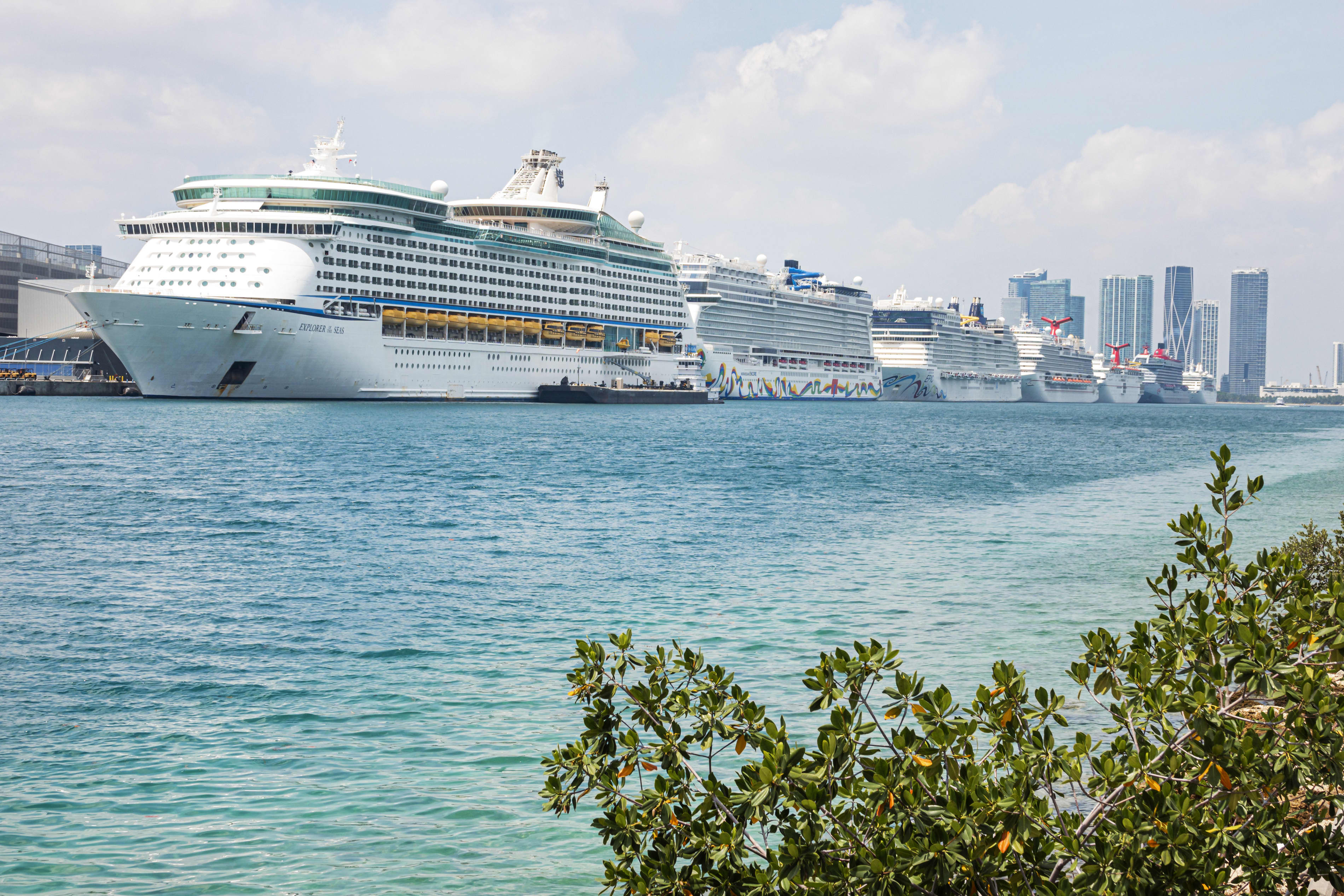CDC extends ban on cruising through October after White House reportedly overrules longer extension

Florida, Port of Miami, Row of cruise ships docked, non-essential business due to Coronavirus.
Jeff Greenberg | Universal Images Group | Getty Images
The Centers for Disease Control and Prevention on Wednesday extended its ban on passenger cruising from U.S. ports through Oct. 31 after the White House reportedly overruled calls for a further suspension.
The CDC originally issued a no-sail order for cruise ships in U.S. waters on March 14 after hundreds of coronavirus infections and several Covid-19 deaths were reported onboard ships with outbreaks across the world. The CDC previously said “that cruise ship travel exacerbates the global spread of Covid-19” in justifying the order.
Between March 1 and Sep. 29, at least 3,689 probable cases of Covid-19 were reported on cruise ships in U.S. waters, the CDC said in a statement late Wednesday, adding that at least 41 Covid-19 deaths have occurred on cruise ships. The agency added that “these numbers are likely incomplete and an underestimate.”
“Recent outbreaks on cruise ships overseas provide current evidence that cruise ship travel continues to transmit and amplify the spread of SARS-CoV-2, the virus that causes COVID-19,—even when ships sail at reduced passenger capacities—and would likely spread the infection into U.S. communities if passenger operations were to resume prematurely in the United States,” the CDC said in announcing the extension.
CDC Director Dr. Robert Redfield pushed to extend the order until February 2021, according to Axios, which cited two people familiar with the matter. Axios reported that Vice President Mike Pence overruled Redfield and that the plan is to extend the ban until Oct. 31, which coincides with a voluntary suspension announced by the trade group the Cruise Lines International Association.
Executives of the cruise companies and CLIA are planning a meeting at the White House on Friday, CNBC’s Seema Mody reported.
The pandemic has hammered shares of the three major publicly traded cruise companies, Royal Caribbean, Carnival Corp and Norwegian Cruise Line. Shares of the three companies are down at least 50% from Jan. 1. However, all three have outpaced broader market gains since hitting their lows in mid-March. Shares of Norwegian are down nearly 70% since Jan. 1, but have clawed back some gains since hitting a 52-week low on March 18. The stock is up more than 100% since then.
The industry has been fine-tuning a public health proposal to resume sailing. Royal and Norwegian have convened a panel of former U.S. health officials and top infectious disease specialists to propose a plan for ensuring safety on cruise ships. Last week, the panel submitted their 60-plus-page report of recommendations to the CDC. It includes proposals for companies to conduct entry testing for all passengers and crew, daily temperature checks, mask recommendations and more.
Taking into account the submitted proposal and signaled support from the Trump administration, Morningstar analyst Jaime Katz said she anticipates the ban to be lifted between November and January.
“The cruise lines were not planning to sail domestically until Nov. 1 anyway, so I don’t know that this really changes expectations,” she said of the CDC’s extension of the ban. She added that it will take time for companies to bring their ships back to U.S. waters, onboard crew and resume some operations.
“The first round of ships that they put out, they’re going to want to mostly be those short itinerary cruises domestically,” she said, adding that a more complete deployment of ships could come mid-2021. “Then they’ll see if the protocols are working and once there’s confidence in those protocols, then you can really implement that across the fleet a whole lot easier.”
She added that the lifting of statewide restrictions by Gov. Ron DeSantis in Florida, a key market and point of operations for the cruise industry, is another sign that sailing could resume this year.
“The economic impact factor has become much more apparent as you’ve had these shoreside employees furloughed for so long,” Katz said. “They want to get people back to work.”
But James Hardiman of Wedbush emphasized that the cruise industry faces a public perception problem and the politicization of the return to operations could hurt the industry’s ability to win over the public. He added that if the no-sail order is allowed to expire before the Nov. 3 election, it may be perceived as a bid by President Donald Trump to win over voters in Florida, a key swing state.
“The last thing the cruise industry leadership wants is for this to become a political issue,” he said. “This is an industry that’s been around for a long time and they intend to be around for a long time going forward.”
He echoed Katz’s point that once cruising resumes, these companies will likely remain unprofitable for months.
“I am fairly bullish on the industry long term. It’s obviously a mess in 2020 and 2021 I think is going to be a messy year as well,” he said. “But the best news we could get is that they were given the clearance to resume operation.”




